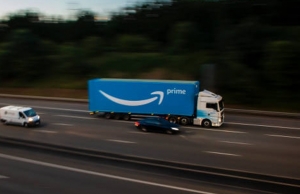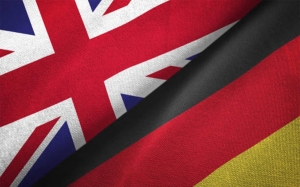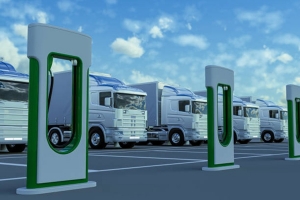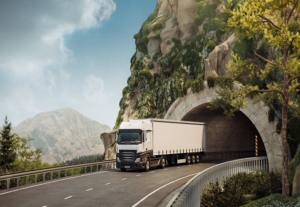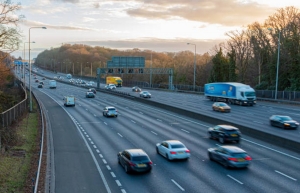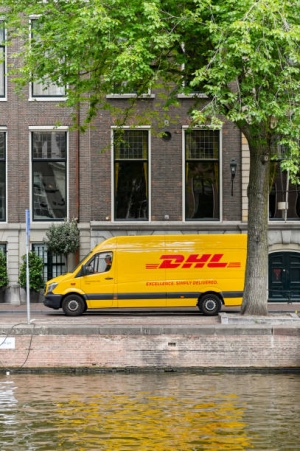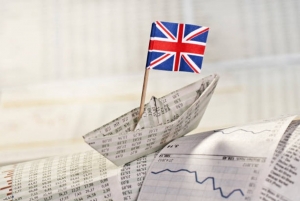Amazon Expands AI Capabilities to Boost Innovation and Sustainability
Amazon is doubling down on its investment in artificial intelligence, using the technology to enhance customer experiences and support its ambition to become net zero by 2040. CEO Andy Jassy described AI advancements as transformative, noting that innovations like generative AI are reshaping what’s possible for both consumers and businesses.
With over two decades of AI experience, Amazon has long embedded machine learning into its operations. Initiatives like Amazon Science were launched to develop solutions that enhance user experiences, solve operational challenges, and work alongside engineering teams. Notably, voice assistant Alexa, introduced in 2014, continues to evolve through natural language processing.
Sustainability is also a major focus of Amazon’s AI strategy. By leveraging AI, the company is optimising warehouse operations, forecasting demand, improving packaging efficiency, and managing carbon emissions more effectively. According to Chief Sustainability Officer Kara Hurst, AI is helping to drive improvements in energy and water usage across Amazon’s facilities, marking just the beginning of its role in environmental efforts.
The launch of Amazon Nova, a suite of next-generation AI models, marks a new chapter. Designed to process text, images, and video, Nova supports a range of content creation needs. SVP Rohit Prasad said it addresses key developer challenges and delivers improved speed, personalisation, and cost efficiency across multiple platforms.
Hauliers Push Back Against Driver Pay Criticism Amid Cost Pressures
Haulage operators have hit back at recent criticism from HGV drivers who accused them of underpaying and fuelling job shortages through “greed”. The backlash follows claims from some drivers that low wages are discouraging new entrants and threatening the future of the profession, amid predictions that HGV driving roles could vanish by 2029.
However, industry leaders say the criticism overlooks the growing financial strain on transport firms. Michael Doherty of the Doherty Group highlighted soaring equipment costs, including a £60,000 rise in lorry prices and £40,000 increases for specialist trailers. He also cited the burden of higher fuel costs, employer National Insurance hikes, and tight operating margins, warning that these pressures are forcing smaller firms to shut down or be absorbed by larger operators.
Justin Hyde from Mastermac Haulage argued that hauliers are working on razor-thin margins, often below 3%, and cannot afford inflated wage demands. He pointed to significant upfront investments, with trucks costing £140,000 and driver wages already averaging around £50,000, while many full-load jobs struggle to fetch even £400.
CLF Commercials’ Craig Foster added that while drivers are using the shortage to push for better pay, the industry cannot sustain rising costs and wage hikes simultaneously. He warned that the sector’s finances are more stretched than ever.
UK and Germany Sign Historic Pact Focused on Defence, Trade and Innovation
On 17 July 2025, Prime Minister Sir Keir Starmer hosted German Chancellor Friedrich Merz in London to sign a landmark treaty—the first formal agreement between the UK and Germany since the Second World War. While the treaty focused largely on defence and migration, it also laid the foundation for enhanced economic and technological cooperation.
One key section, titled Economic Growth, Resilience and Competitiveness, outlined joint commitments to boost job creation, support digital innovation, and pursue a sustainable industrial transformation. Both governments agreed to address shared vulnerabilities and align their policies to build a greener, more resilient economy.
The agreement placed a strong emphasis on green energy, with both nations pledging to capitalise on the renewable potential of the North Sea and invest in technologies that support the transition to net zero. Economic opportunity through environmental action was a clear shared priority.
Technology and research also featured heavily, with Starmer and Merz agreeing to structured collaboration on emerging and critical technologies, including artificial intelligence. Regular exchanges between both countries' scientific and innovation communities were promised, with a focus on ensuring the secure and responsible use of new technologies to tackle future global challenges.
Nissan Unveils UK’s First Shared Charging Hub for Electric HGV Fleet
In a landmark move for the UK automotive sector, Nissan has launched the country’s first private, shared charging facility dedicated to electric heavy goods vehicles (eHGVs). Located at the Sunderland plant, the £1.4 million project marks the creation of a fully electric supply chain – delivering materials in and transporting completed vehicles out – all while supporting the company’s wider EV36Zero commitment to sustainable vehicle manufacturing.
The charging hub features seven high-capacity stations that can power up to ten eHGVs at once. It will support a fleet of 25 electric trucks handling daily deliveries from suppliers across the UK, including locations as distant as Derby, and transporting vehicles to and from the Port of Tyne. Collectively, the eHGVs will cover over 2.4 million kilometres each year, cutting 1,500 tonnes of CO₂ emissions.
Developed with partners Fergusons, Yusen, and BCA as part of the Electric Freightway initiative led by GRIDSERVE, this pioneering effort is supported by Innovate UK and the UK Government’s £200 million Zero Emission HGV programme.
Government and industry leaders have hailed the project as a vital step toward greener freight transport. With further plans to open access to other hauliers and expand capabilities, the station sets a powerful precedent for future logistics infrastructure in the UK.
UK Driving Jobs Facing Critical Shortages Amid EV Boom and Industry Shift
As the UK’s automotive sector—now worth around £100 billion—moves towards electrification, new research highlights a looming crisis in key driving roles. While government targets push for 80% electric vehicle (EV) production by 2030, a major shortfall in skilled workers across logistics and maintenance is on the horizon.
HGV drivers are among the most at-risk, with projections suggesting a complete shortage by 2029. Despite efforts to attract more drivers, an ageing workforce and lower-than-average salaries continue to hamper recruitment. Meanwhile, delivery driver roles could see a severe gap by 2037, with tens of thousands of vacancies already reported in 2025 alone.
The rapid rise of EVs is also transforming the needs of the workforce. Vehicle technicians, especially those skilled in EV diagnostics and repair, are in growing demand—yet only 24% of current technicians are EV-qualified. Without targeted investment and training, the UK could face a technician shortfall by 2047.
Not all roles are in decline. Waste collection and car sales jobs are seeing renewed interest, with search demand rising 440% and 83% respectively. As the industry evolves, it’s clear that embracing new technologies and workforce development will be essential in avoiding widespread disruption across the automotive sector.
New £2m Fund Aims to Drive Green HGV Transition in Scotland
The Scottish Government has unveiled a £2 million fund to accelerate the shift towards low-emission Heavy Goods Vehicles (HGVs). The 2025–26 HGV Market Readiness Fund is designed to support collaboration across the freight sector – bringing together hauliers, manufacturers, finance providers and charging infrastructure specialists to help pave the way for a greener road freight future.
This latest initiative follows groundwork laid in 2024 through the HGV Decarbonisation Pathway, which identified key areas for investment and mapped out where infrastructure will be most needed to support zero-emission HGVs across Scotland. Half of the funding has been ringfenced specifically for small and medium-sized operators, who are often most affected by the high costs of decarbonisation.
Transport Secretary Fiona Hyslop highlighted the importance of collective effort: “We’ve learned from our work on bus decarbonisation and are applying those lessons to freight. Smaller firms play a huge role in Scotland’s logistics industry, so it’s vital they aren’t left behind as we move towards net zero.”
Industry leaders have welcomed the move. The Road Haulage Association and Logistics UK both praised the fund, emphasising its potential to ease the financial burden on smaller operators and help overcome key barriers to adopting green technologies within the HGV sector.
Government Scraps Major A12 and A47 Road Schemes Over Budget Concerns
Plans to expand two busy A-roads in eastern England have been scrapped due to funding shortfalls, Transport Secretary Heidi Alexander has confirmed. The proposed widening of the A12 near Chelmsford and a new dual carriageway on the A47 between Wansford and Sutton will no longer proceed, as the government shifts its infrastructure priorities.
The A12 upgrade, a £1.2 billion initiative, aimed to improve a 15-mile stretch between Chelmsford and Marks Tey, used by around 90,000 vehicles daily. Originally approved under Rishi Sunak’s government in early 2024, the project has now been shelved, with Alexander citing its high cost and lack of financial planning. She criticised the previous administration for announcing projects without securing funding, stating her department would only back schemes that are affordable and deliver taxpayer value.
Local leaders have expressed disappointment. Essex County Council’s Deputy Leader, Louise McKinlay, labelled the cancellation “hugely disappointing,” stressing the road’s urgent need for improvement and describing the route as “unfit for purpose.”
The A47 project, which planned to dual a 1.6-mile section of road in Cambridgeshire, was also axed. Alexander noted that £500 million is already being spent on other A47 improvements and said future investment would be redirected to underfunded regions in the North and Midlands to better balance national infrastructure spending.
DHL Named Official Logistics Partner for FIA with a Focus on Sustainability
DHL has been selected as the official global logistics partner for the Fédération Internationale de l’Automobile (FIA), the organization responsible for overseeing international motorsport and promoting mobility worldwide. The new partnership will see DHL managing key logistical operations for Formula 1, Formula 2, and Formula 3 events, including the transportation and setup of mobile office spaces, garages, and racetrack equipment.
In this role, DHL will be responsible for ensuring the smooth delivery and installation of essential infrastructure at race venues. The company’s expertise in motorsport logistics will be crucial in maintaining the high standards required for elite racing events. This includes handling sensitive equipment used in timing, safety, and race management.
A central theme of the partnership is environmental responsibility. DHL will be integrating sustainable practices into its operations by deploying trucks powered by hydrotreated vegetable oil (HVO) for races across Europe. The use of alternative fuels reflects both organizations' shared goals to reduce emissions and promote cleaner technologies in motorsport logistics.
FIA's chief commercial officer, Craig Edmondson, emphasized the importance of aligning with partners who prioritize sustainability. He noted that this collaboration offers not only operational support at racing events but also a chance to further embed eco-conscious practices throughout the motorsport ecosystem.
UK’s New Trade Strategy Aims to Strengthen Supply Chains and Boost Exports
The government has outlined a fresh approach to international trade, aiming to enhance economic security and build stronger ties with global partners. The newly announced Trade Strategy, revealed by the Department for Business and Trade, focuses on a more flexible policy in light of rising protectionism and geopolitical challenges. Key proposals include £20 billion of new backing through UK Export Finance, updates to border operations, and the launch of both a Supply Chains Centre and an Economic Security Advisory Service.
These new bodies will work to safeguard essential trade routes and provide guidance on economic risks such as supply chain interruptions and the misuse of trade as a political tool. Logistics UK welcomed the plans but stressed the need for the sector to play a central role in delivering them. The industry highlighted the urgency of implementing digital customs solutions, including the Single Trade Window, to ease trade flows post-Brexit, particularly for small businesses.
The strategy promises to simplify export processes, reduce paperwork through digital documentation, and introduce new funding to help break down trade barriers. A dedicated scheme for small exporters will also offer easier access to finance and insurance through a digital platform, helping smaller firms engage in global markets more effectively.
With a focus on key growth industries like clean energy and advanced manufacturing, the government hopes new trade agreements, including a deal with India, will open up further opportunities. At the same time, efforts will be made to tackle the decline in EU exports by cutting bureaucracy and improving regulatory cooperation.
Dartford Crossing Charges for Lorries Set to Rise Sharply
Heavy goods vehicles using the Dartford Crossing will soon face higher fees, as the government has announced a notable rise in charges. From September, lorries will pay £8.40 per crossing — an increase of £2.40. Even those with pre-paid accounts won’t escape the hike, with rates climbing 39% to £7.20 for vehicles with more than two axles.
Smaller goods vehicles with two axles will also see new rates introduced. They’ll be charged £4.20 for single journeys, or £3.60 if using a pre-payment account. Transport Minister Lilian Greenwood acknowledged the increase would not be welcomed by many but pointed out that traffic demand has grown significantly since charges were last adjusted in 2014.
With daily traffic at the crossing averaging 150,000 vehicles, and peaking at 180,000 on the busiest days, the bridge is handling more than it was designed for. The minister said the rise in tolls was essential to help manage congestion and improve flow for both drivers and residents nearby.
Industry voices, including the Road Haulage Association’s James Barwise, have expressed concern. He warned the added cost comes at a difficult time for hauliers and could mean higher costs passed on to consumers. The need for the delayed Lower Thames Crossing is now seen as more urgent than ever.


